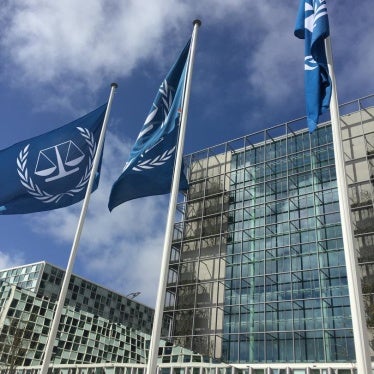The past year has seen important gains for justice for victims of genocide, war crimes, and crimes against humanity – victories we should celebrate on the Day of International Criminal Justice, July 17.
Highlights include the start of the trial against Congolese rebel leader Bosco Ntaganda, who evaded an International Criminal Court (ICC) arrest warrant for seven years, and the conviction of former Congolese vice president Jean-Pierre Bemba in the first ICC case in which sexual violence as a weapon of war was the most prominent charge.
There were also the first prosecutions of Syrian war crimes suspects – albeit lower-level figures – in European domestic courts, the conviction of Radovan Karadzic for his role in the 1995 Srebrenica genocide in Bosnia and Herzegovina, and the conviction and sentencing to life in prison of Hissène Habré, the former dictator of Chad, by a special court set up in Senegal – the first of its kind in Africa.
Yet many obstacles to international justice remain, and some are worsening.
In many places around the world, victims have no access justice. The last of the ICC’s cases related to Kenya’s 2007-2008 post-election violence collapsed this year, leaving no easy path ahead for victims. Some ICC member countries refuse to cooperate with the court and help arrest Sudanese President Omar al-Bashir. And there is pressure to constrain the court’s budget – despite rising demands.
Backlash from a vocal minority of African governments that accuse the ICC of bias against Africans escalated over the past year. In January, the African Union even tasked a committee with considering the issue of withdrawal from the ICC by its member countries.











